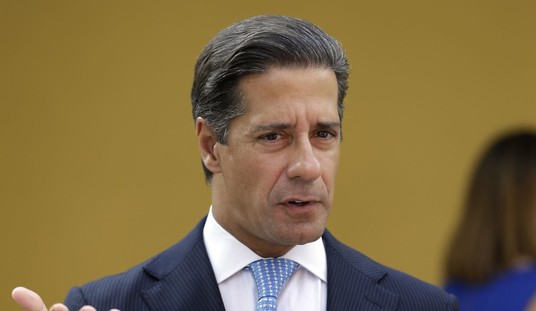It’s starting to seem as if the Supreme Court is making more news by declining to take cases than issuing rulings on them. The latest example comes to us courtesy of a case out of Indiana and a ruling from the 7th Circuit Court of Appeals. Indiana has a law on the books limiting who can or cannot be recorded as the parent of a child, specifically when it comes to listing them on the baby’s birth certificate. Under that law, only the biological father can be listed as the other parent aside from the mother who gave birth. That law was challenged by a married lesbian couple who sought to have the mother’s wife listed as the second parent. The 7th Circuit sided with the plaintiffs and in an unsigned statement, the Supreme Court chose not to consider overturning their ruling. (NBC News)
The U.S. Supreme Court declined Monday to take up an Indiana case seeking to reverse a lower court’s ruling that allows both members of same-sex couples in the state to be listed as parents on the birth certificates of their children.
The high court turned aside without comment a petition that Indiana’s attorney general, Curtis Hill, filed with the court last month. Hill had argued for the justices to reverse a January decision by the U.S. 7th Circuit Court of Appeals that affirmed a ruling by Indiana’s federal southern district court that said Indiana laws limiting who can be called a parent of a child were unconstitutional.
Karen Celestino-Horseman, the attorney for the plaintiffs who challenged Indiana’s birth records law, said “we’re delighted” about the high court’s decision not to hear the case.
The couple in question are Ashlee and Ruby Henderson. Ruby became pregnant through artificial insemination and gave birth to their first child, but the state wouldn’t allow Ashlee to be listed as the other (non-biological) parent.
I realize that my generally small-government to conservatarian views on gay marriage and related subjects aren’t always popular with some of our conservative brethren. But with that said, this seems like the right call for the Supremes to make in my never very humble opinion. I have long held that the optimal environment for raising a child is in a stable home with both a male and female parent or guardian, if only to provide role models and exposure to both genders and how they interact. But I also understand that not everyone feels that way and not every child can have an “ideal” upbringing, sadly.
The reality, at least to me, is that two parents – if they are stable and good with children – are always going to be better than one. One parent in a stable home is also better than seeing a child left to make their way through the state custody system. And if that means two mothers or two fathers, so be it. I personally know two gay couples in our neighborhood who are raising children and they all seem to be doing a fine job.
As to the conservatives who will respond by objecting to the possibility that the child will be “indoctrinated” into a gay lifestyle or something similar by being raised in a same-sex household, I’ve pretty much been disabused of that notion. Children are born the way they are born as far as I can tell. If they are destined to be straight, they’re not going to be attracted to others of their gender. If they were born to be gay, society may force them into the closet, but nobody is ever going to change their fundamental nature.
Having said all of that, I do see this question as being considerably different than the debate over gay marriage. As I’ve written here repeatedly, the reason I don’t object to gay marriage is that the government shouldn’t be in the marriage business at all. It shouldn’t be demanding taxes or licenses in return for Big Brother’s permission to hold a private ceremony before family and friends. But we do have many laws on the books intended to ensure the safety and well-being of children because that is part of the responsibility the government bears. So there’s also a part of me that feels that each state should be able to pass its own laws in line with that responsibility, whether I agree with the underlying reasoning or not. But when those laws cross the line of discriminating against some adults/parents and not others, we run into problems. And that seems to be what’s happened in Indiana.








